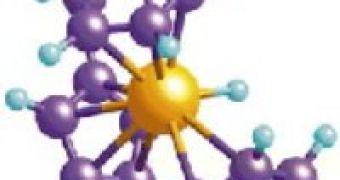Shish-kebab is a tasty meat dish usually made of lamb and beef, but chicken is not excluded. Only pork. Now, a new type of shish-kebab is on the market, but it's made of polymers. And it's not edible.
Shish-kebabs are nanoscale structures that form when polymers crystallize during flow, looking like a skewer running through a stack of bell peppers. Inside plastics, they make car body panels stiff and carpet fibers strong.
Now, Caltech chemical engineering professor Julia Kornfield and Yoshinobu Nozue at Sumitomo have created new properties of certain polymer shish-kebab that could greatly improve some properties of materials in the most widely used plastics.
"Our discovery is pertinent to the relatively strong and stiff plastics," says Kornfield. "For example, it will allow manufacturers to make polymers for complex and beautifully shaped body panels with equal or better quality than currently available-and cheaper and faster."
Consisting of a type of polymers called polyolefins, they make up half of all plastics, used in commercial applications like car parts, pipes, wire, cable, carpets, fabrics, disposable syringes and many other things.
Their properties can be carefully selected by researchers, by varying the alignment and the degree of crystallinity, to create a finished product hard as steel or as soft as a rubber band.
"The plastics industry can tailor-make molecular distributions, but we don't know how to manipulate them," Kornfield explains. "This discovery opens up a whole new neck of the woods that people didn't know they could explore, and they'll be able to create combinations of properties you couldn't get before."
It seems that certain long molecules can make many others create a shish, which directs the formation of kebabs, allowing a greater control of the manufacturing process.
"In other words, you could make things by injection molding that you couldn't make before, and injection molding is a very cheap, fast process-you can pop a plastic bumper for an automobile out of its mold in a couple of minutes. So you bring down the cost of manufacturing and at the same time increase the throughput," concluded Kornfield.

 14 DAY TRIAL //
14 DAY TRIAL //